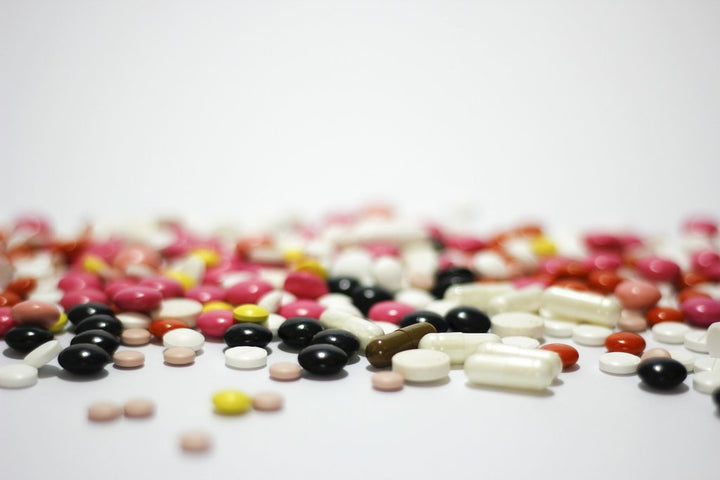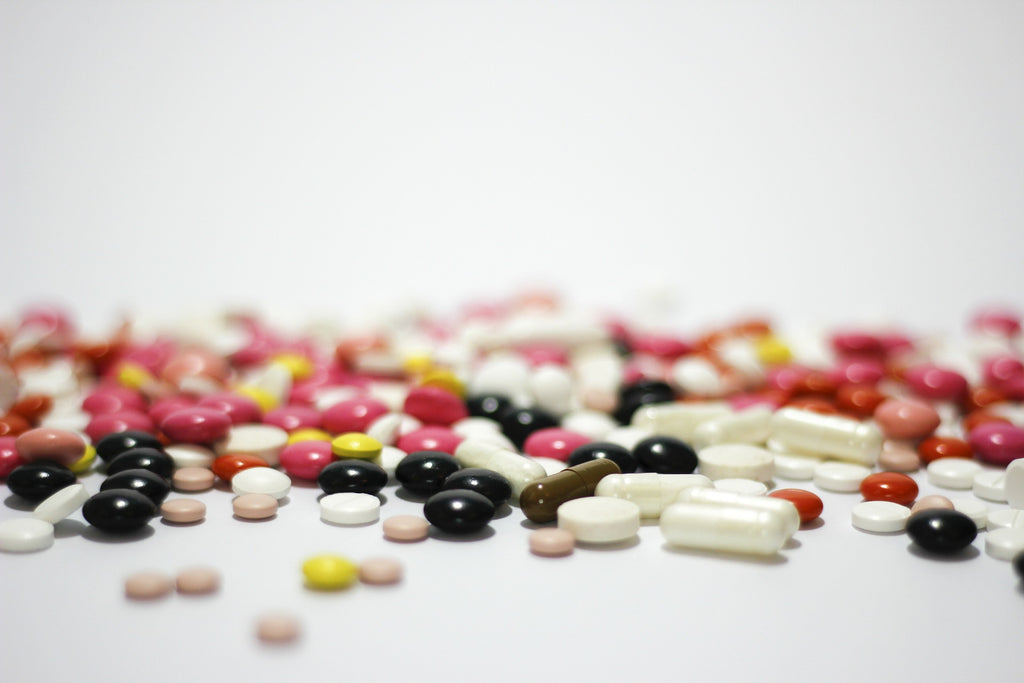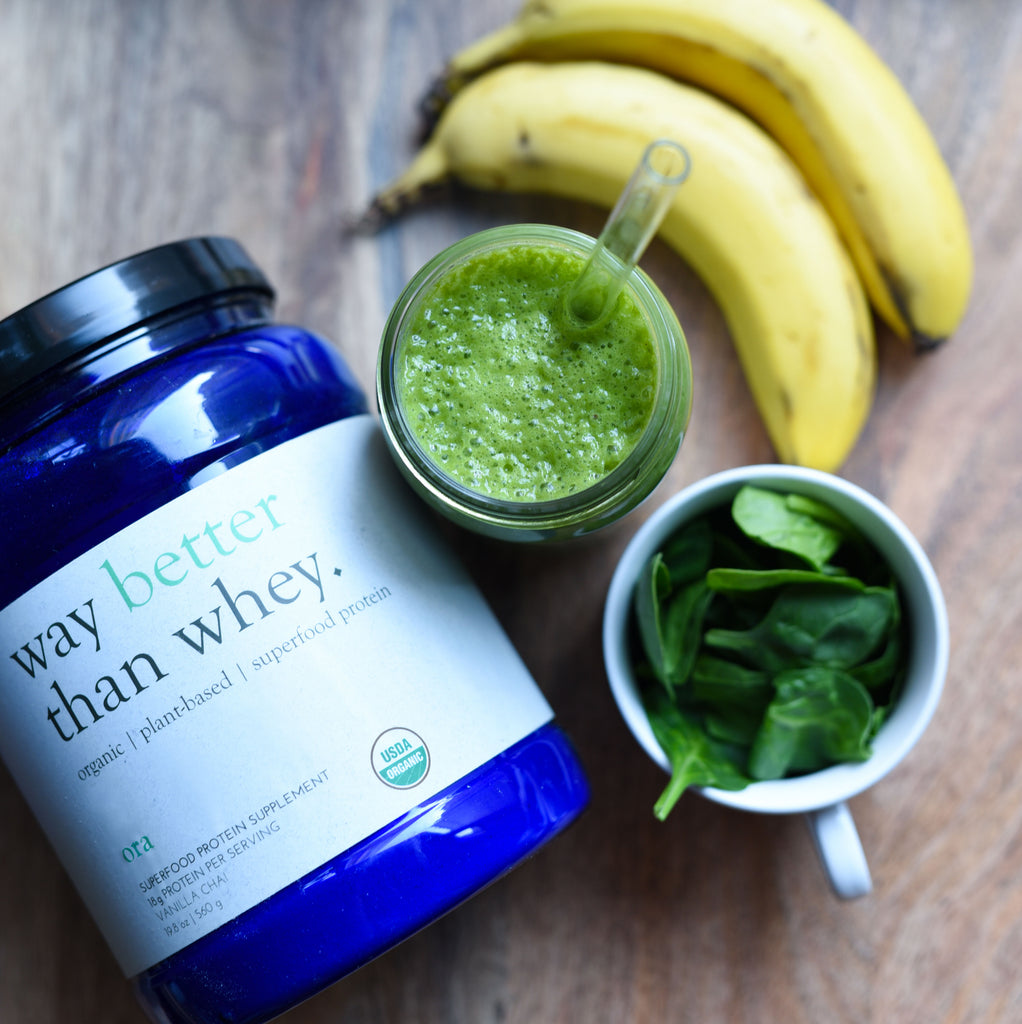When you walk through the produce section at your local grocery store, co-op or Farmers Market, you’re able to get a pretty good lay of the land simply by looking around. For example, when you see a sign for dinosaur kale, you can safely assume that the green thing below the sign is actually dinosaur kale. You may never know why it’s called dinosaur kale, but you can trust that it is, in fact, your leafy green friend. All the produce is clearly labeled and one can quickly tell which items are organic and which ones aren’t.
Head over to the supplements aisle, however, and cue the saloon music and tumbleweed: you’ve just entered the Wild West.

The supplements aisle leaves most of us feeling dazed and confused. The labels whisper all kinds of empty promises in your ear: lose weight, stay young, live forever and ‘optimize your performance’ (whatever that means).
When we look at the back of the label to try to understand what’s really going on, some pretty fair questions come to mind, like:
Is this English? What are boric acid, nickelous sulfate, and cupric oxide? Why is it that on food labels, vitamins are labeled "Vitamin B6" and "Vitamin A," yet on supplement labels they're referred to as "Vitamin B6 as pyridoxine hydrochloride" and “Vitamin A as retinol palmitate"?
Well... Boric acid is the active ingredient in roach killer, nickelous sulfate is a known carcinogen and cupric oxide is a fungicide. "As pyridoxine hydrochloride" and "As retinol palmitate" means they're the synthetic, man-made versions of the same vitamins found in nature. The obvious argument is to say #science - but we'd argue that most scientists and doctors wouldn't recommend ingesting a known carcinogen on a daily basis. Product and ingredient decisions should be rooted in leading scientific research from world-renowned institutions; and when it comes to food and nutrition, we believe that nutrients come from real food - not synthetic chemicals.
Can we go back to the produce section now, please?
Organic produce is pretty trendy these days - and with good reason. It's no longer considered worth it to plug our bodies with pesticides and GMOs just to save a little money. It's easy to glance at a Nutrition Facts label on the back of any food box and identify the processed or artificial ingredients hiding in there. But for some reason, the same level of scrutiny is not applied to our supplements.
While consumers have grown aware of the benefits of organic and high-quality ingredients for their food, personal care, pet food, and even home cleaning products; supplements, somehow, got left behind in the dust.
Talk to your friends, family, and co-workers about it, and you'll quickly discover the size of the problem. More than half of all Americans take a nutritional supplement, but do enough of these people understand what the supplements in their pantries contain? Or what they do? Or the potential health concerns surrounding them...?
We’re meant to take supplements every single day; and what we put into our bodies – 30 to 31 days a month – ought to be extremely high quality.
That’s why we started Ora – to set the bar for quality, efficacy and radical transparency in an industry that desperately needs it. Nutritional supplements made from real, organic, food.
Ora, in the Maori language of New Zealand, means life, health & vitality.
Ora (in California) creates organic, plant-based, chef-designed & sustainable nutrients.
Our Plant-based Omega-3, Organic Probiotics + Prebiotics, Organic Superfood Protein and Organic Plant-based Multivitamin are made with the purest organic, plant-based ingredients. We chose to only make products with health benefits that are proven by decades of scientific, medical and nutrition research.
We wanted to make the supplement experience enjoyable (not just tolerable), so we brought on an in-house Chef to make our products taste great. No more giant horse-sized capsules or pinching your nose to down something that tastes like a handful of dirt and grass.
Why start with these products? The health benefits of omega-3 fatty acids (specifically DHA and EPA), probiotics and dietary protein are well documented and widely recognized by doctors, scientists, and nutritionists. Tens of thousands of studies have proven that these nutrients are vital to our everyday health - regardless of age or gender. We don’t deal with rare herbal supplements because their effects are typically unproven, and instead, we focus only on nutrients with commonly accepted benefits.
We want to bring the supplements industry into the 21st century with nutrients made from real organic food. No cutting corners, no synthetic ingredients - only proven benefits.
So, now you know our mission. Tell us what you think about it! Check us out on Instagram, Facebook & Twitter. And remember to check the label on your supplements.





